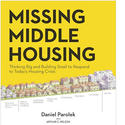For decades, New York has been the leading exporter of people to other states, though has been severely challenged since 2000 by California. During five years around the housing bust, more net domestic migrants left California than New York. Then, for a time, California’s annual losses were not quite as severe read more »
Suburbs
Why Trump's America Will Live On
Like many, if not most Americans, I am somewhat relieved to see the petulant, nasty and sometimes clearly unhinged Donald Trump leave the White House. Yet for all his antics and vitriol, Trump has left a legacy that will be difficult to ignore and, given the dispensation of his opponents, could shape the future for the next decade. read more »
- Login to post comments
America Isn't Falling Apart. It's Still the Land of Opportunity
More than 840,000 green card holders became citizens last year, the most in a decade. Over 10 percent of the American electorate was born elsewhere, the highest share in a half-century. All of Donald Trump’s huffing and puffing could not stop this demographic evolution; nor could an endless stream of stories about what an unequal, unfair, and no good place America has supposedly become. read more »
- Login to post comments
Ownership and Opportunity: a new report from Urban Reform Institute
In a new report from Urban Reform Institute edited by Joel Kotkin, J.H. Cullum Clark and Anne Snyder explore what happens when opportunity stalls. Pete Saunders and Karla Lopez del Rio tell the story of how homeownership enabled upward mobility for their respective families. Wendell Cox quantifies the connection between urban containment policies and housing affordabilty. read more »
- Login to post comments
Coronavirus and the Office Apocalypse
“We shall never deal with the complex problems of large units and differentiated groups unless at the same time we rebuild and revitalize the small unit. We must begin at the beginning; it is here where all life, even in big communities and organizations, starts.”
— Lewis Mumford read more »
- Login to post comments
California and Its Contradictions: Rumblings of Realignment Beneath a Solid-Blue Surface
California remains deep blue, but the good news from this week’s elections is that it has not yet achieved complete ballot-box unanimity. read more »
- Login to post comments
America After COVID: What Demographics Tell Us
“When there is a general change in conditions, it is as if the entire creation had changed, and the whole world altered.” —Ibn Khaldun, 14th century Arab historian read more »
- Login to post comments
Escape from New York?
Reports continue to mount on the decline of New York City through the pandemic months. In a July 2020 post, we summarized the situation: read more »
- Login to post comments
Poor City, Rich Suburb: A Defining Characteristic of the Rust Belt
We all know that for decades the suburbia narrative was one of homogenized, sprawled and insulated wealth separated from diverse, dense and isolated poverty. We also know that's changed dramatically over the last 30-40 years. But that distinction really first became codified in the development patterns of cities that boomed in the late 19th/early 20th century: coincidentally, when Rust Belt cities boomed. read more »
- Login to post comments
Missing Middle Housing — Book Review
“Missing Middle Housing – Thinking Big and Building Small to Respond to Today’s Housing Crisis” by Daniel Parolek
Book Review by Adam Mayer
California State Senate Bill 1120 (SB 1120), a bill that would’ve permitted duplexes on land zoned for single-family residences across the state, died abruptly at the 11th hour back in August read more »
- Login to post comments






















